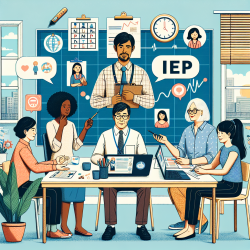The phenomenon of brain drain, particularly in the healthcare sector, is a pressing issue that affects global health equity. Resource-poor countries are losing their skilled health workers to developed nations, leading to significant challenges in maintaining adequate healthcare systems. This blog post explores strategies to mitigate brain drain and improve healthcare outcomes worldwide.
The Challenge of Brain Drain
Brain drain refers to the migration of skilled professionals from resource-poor countries to wealthier nations. This migration results in a shortage of healthcare workers (HCWs) in the countries that need them most. The World Health Organization (WHO) estimates a global shortage of 4.3 million HCWs, with Africa bearing 24% of the disease burden but possessing only 3% of the global health workforce.
Current Strategies and Their Limitations
Several strategies have been attempted to address brain drain, including task shifting and rebalancing incentives. However, these approaches face significant challenges:
- Task Shifting: This involves delegating tasks from highly trained professionals to less specialized workers. While it can expand the human resource pool, it requires substantial investment in training and regulatory systems.
- Rebalancing Incentives: Financial and non-financial incentives are crucial for retaining HCWs. However, these require strategic planning and investment, which may not be sustainable for resource-poor countries.
A New Approach: Global Health Resource Fund
The establishment of a Global Health Resource Fund could provide a sustainable solution to brain drain. This fund would be coordinated by WHO and the World Bank, focusing on cost-sharing and reimbursing resource-poor countries for their losses due to HCW migration.
Key Features of the Global Health Resource Fund
- Fee-Based System: High-income countries and private sector actors recruiting HCWs from critical shortage countries would pay fees into the fund.
- Sustainable Financing: The fund would support health system strengthening (HSS) and brain drain mitigation programs.
- Data Collection: A coordinated data collection framework would track HCW migration patterns and inform policy decisions.
The Role of Practitioners
Healthcare practitioners play a crucial role in addressing brain drain. By engaging with these strategies and advocating for systemic changes, practitioners can contribute to a more equitable distribution of healthcare resources globally.
Steps Practitioners Can Take
- Advocate for Policy Changes: Support policies that promote fair compensation and improved working conditions for HCWs in resource-poor countries.
- Participate in Task Shifting Initiatives: Engage in training programs that empower less specialized workers to take on additional responsibilities.
- Conduct Further Research: Investigate the impacts of brain drain on specific communities and propose tailored solutions.
The issue of brain drain is complex, but with coordinated efforts and innovative strategies, we can work towards a more balanced global healthcare workforce. To delve deeper into this topic, I encourage you to read the original research paper titled Restructuring brain drain: strengthening governance and financing for health worker migration.










